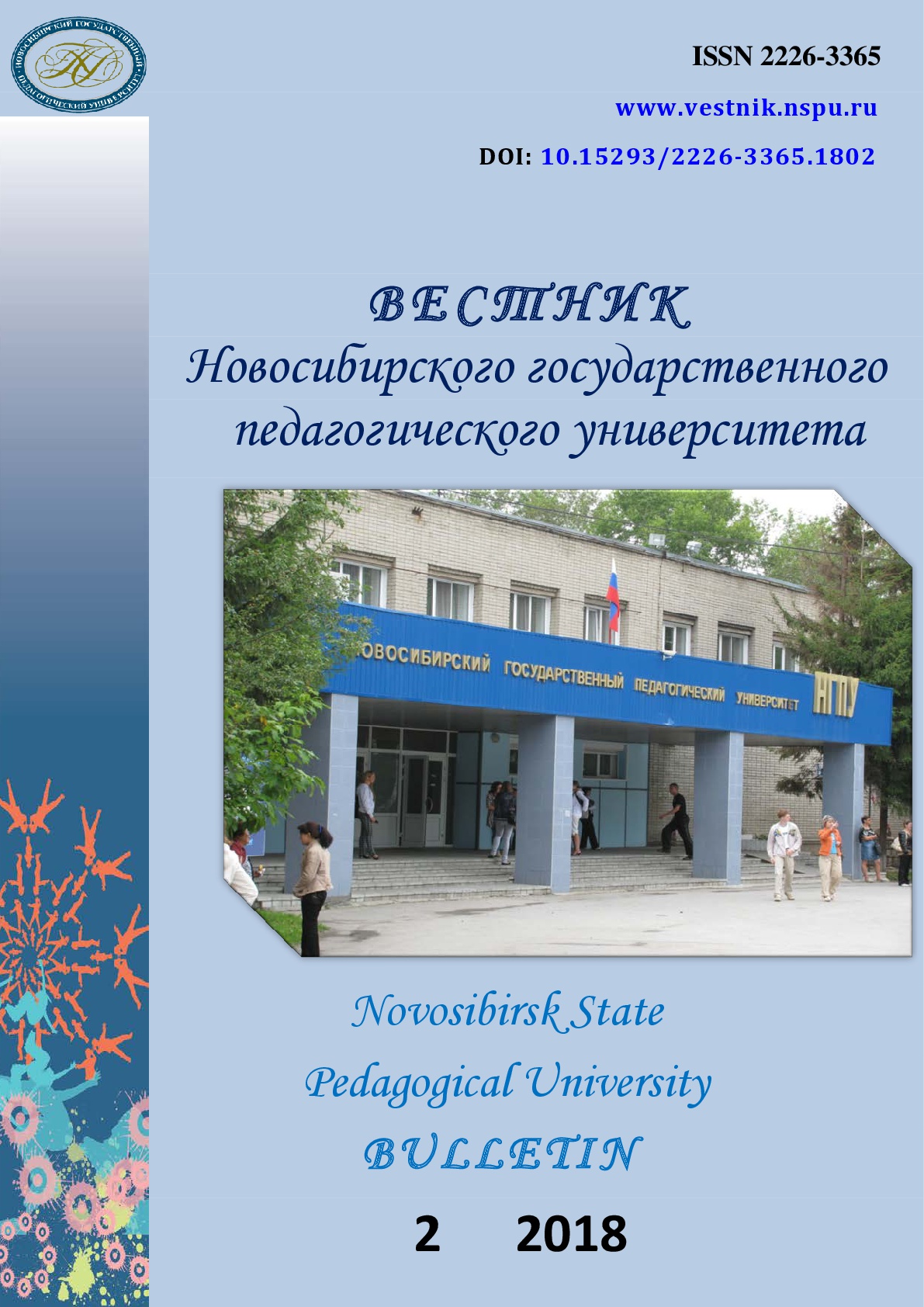Эксперимент и межличностное взаимодействие как факторы активизации познавательной деятельности школьника в процессе обучения информатике
Experiment and interpersonal interactions as factors of enhancing schoolchildren’ cognitive activity in the IT classroom
Author(s): Elena Alexandrovna Vasenina, Maria Vladislavovna Petuchova, Elena Viktorovna Kharunzheva,, Elena Vitalievna SobolevaSubject(s): Education, Psychology, ICT Information and Communications Technologies
Published by: Новосибирский государственный педагогический университет
Keywords: Teaching computer science; Development of thinking; Research; Independent work; Information educational environment; Manipulation of information object; Experiment; Effectiveness of the training;
Summary/Abstract: Introduction. The article is devoted to the solution of research problems of enhancing cognitive activities of schoolchildren and providing targeted educational support in order to develop their cognitive skills: to master cognitive methods, techniques and strategies, and to control and manage their cognitive activities. The purpose of the article is to evaluate the effectiveness of experiment and interpersonal interactions as factors contributing to enhancing cognitive activities of schoolchildren in the process of learning computer science. Materials and Methods. The research methodology is based on the analysis and summarizing philosophical, methodological, psychological, educational, didactic, methodical and special literature on the subject of the research; studying the existing practice of teaching computer science, and monitoring the process of teaching computer science. The research methods include questionnaires, action research, and analysis of schoolchildren, teachers and students’ research results. Results. Firstly, the authors have revealed the conditions for the effective application of experiments and interpersonal interaction as factors of enhancing students’ cognitive activities in the process of learning computer science. Secondly, the authors propose a structural model of acquiring knowledge and skills reflected in the structure of IT classes. Thirdly, the authors clarify how computer technologies contribute to support and guidance of students’ independent learning and building individual educational trajectories. Conclusion. The ideas and patterns of educational support of students’ cognitive research activity are summarized with the main focus on teaching Information Technologies.
Journal: Вестник Новосибирского государственного педагогического университета
- Issue Year: 8/2018
- Issue No: 2
- Page Range: 7-25
- Page Count: 19
- Language: Russian

